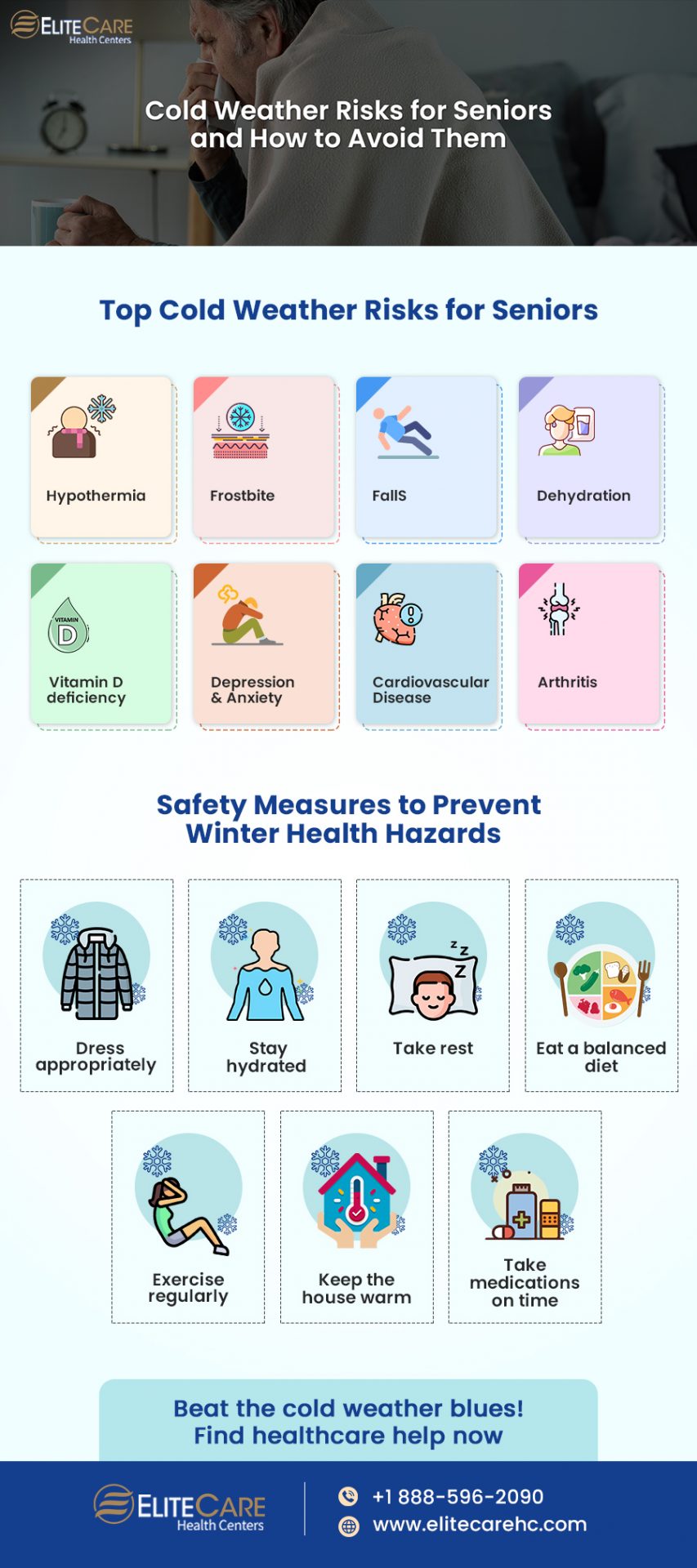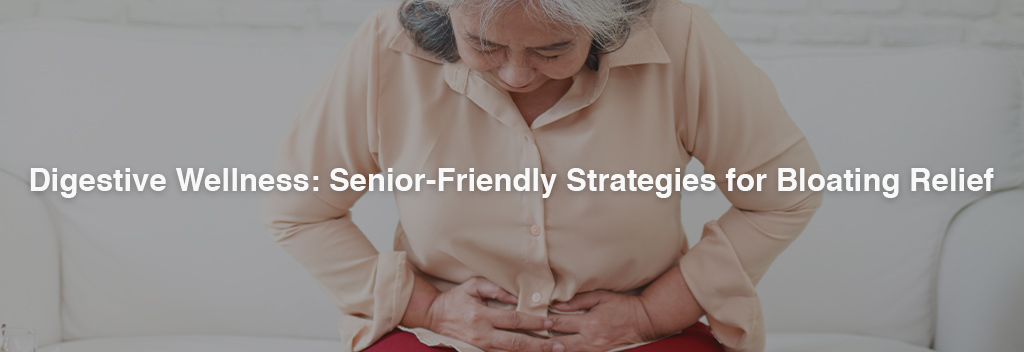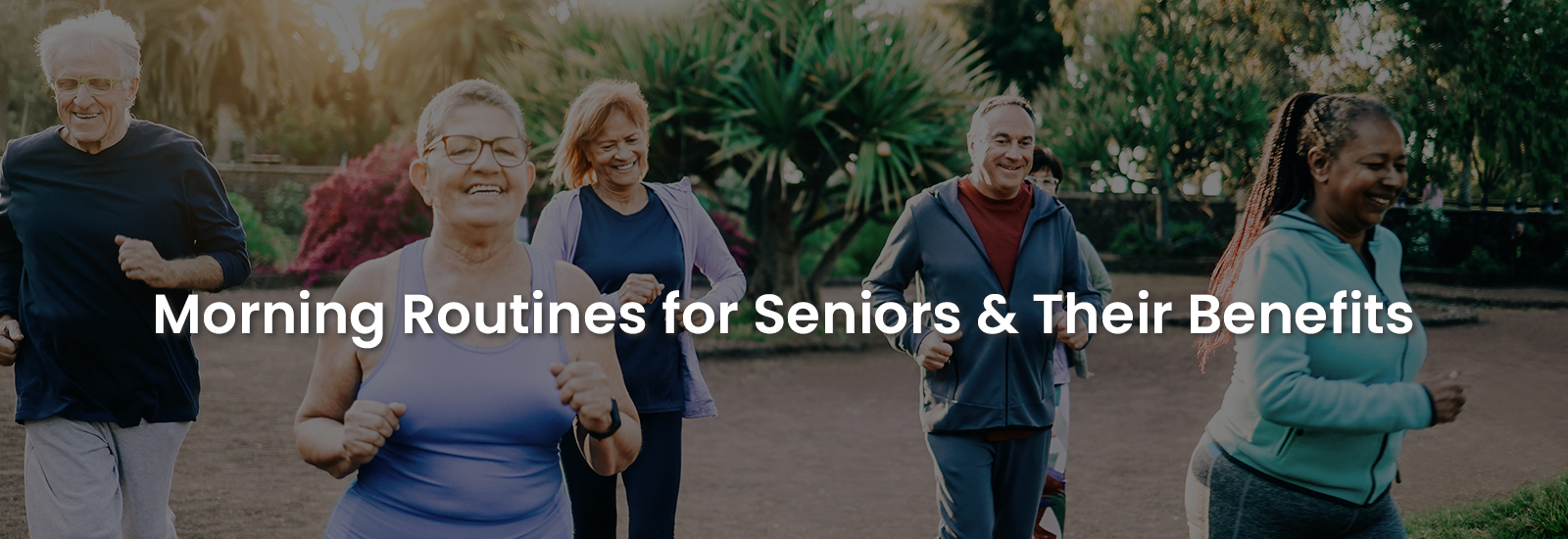
Winter is the most wonderful time of the year. It brings the anticipation of the holiday season, the beauty of snow-covered landscapes, and the prospect of spending time with friends and family. But winter can also bring challenges for seniors. Seniors are at a higher risk for conditions such as hypothermia, frostbite, and dehydration, which are extremely serious and life-threatening conditions. Being aware of the risks and taking precautions is the most effective way to ensure our loved ones stay safe and sound this winter. Although Florida sees less intense winters, if you’re planning on traveling this winter, here are some safety tips for seniors to enjoy the holiday season safely and in good health.
Top Cold Weather Risks for Seniors
During winter, seniors may feel colder because their bodies produce less heat as they age due to changes in their metabolism and reduced physical activity. Their bodies are also unable to regulate their internal temperature as it used to, making it more difficult to stay warm.
For seniors, cold weather can pose several risks. The top cold weather risks for seniors include:
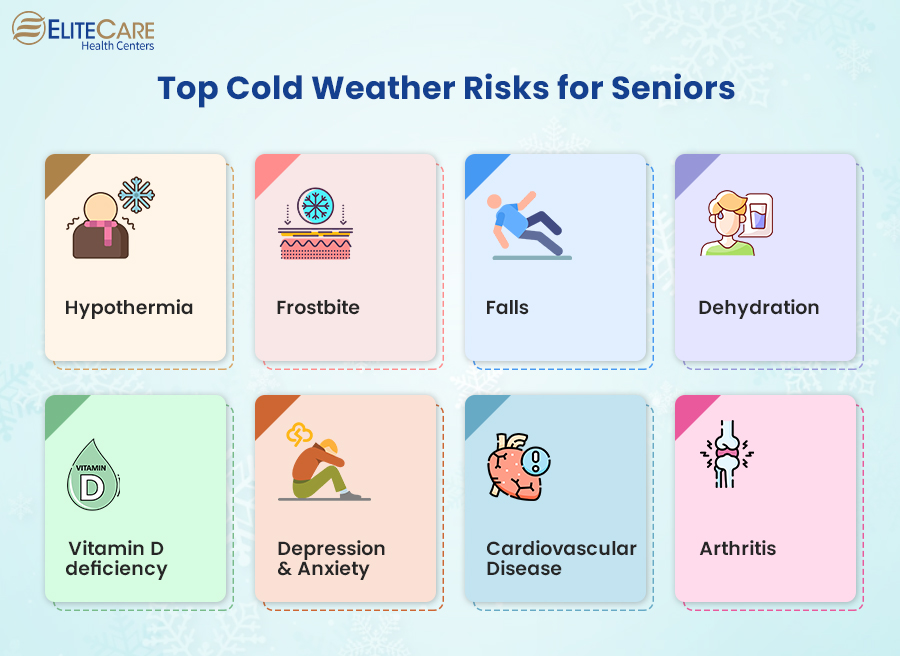
1. Hypothermia
Hypothermia happens when the body temperature drops below normal levels, usually due to prolonged exposure to cold temperatures. It can be dangerous, particularly for seniors, because the body’s ability to regulate temperature becomes less efficient with age.
2. Frostbite
Frostbite happens when the skin and underlying tissues get damaged due to cold weather. It most commonly affects the fingers, toes, ears, and nose. It can be more serious in seniors due to decreased circulation, slower healing, and thinner skin.
If a senior sees signs of frostbite, they should seek medical care immediately. Depending on the severity of the condition, primary health care specialists can treat it. The sooner treatment is received, the better the chances of avoiding serious complications.
3. Falls
The risk of falling increases with age, as seniors can slip or fall due to weakened bones and lack of balance. Falls in the house can be caused by tripping over loose rugs, objects lying on the floor, or even on a wet bathroom floor. It is critical to therefore keep track of any fall hazards. Going out in the snow or attempting to walk on icy roads must be avoided at all costs.
4. Dehydration
Dehydration is an important issue to consider for seniors during the winter months. Due to the cold weather, seniors are less likely to drink enough fluids. When combined with other winter factors like dry, heated air, illness, and medication side effects, dehydration can cause serious health issues, including confusion, kidney stones, and urinary tract infections.
Encourage seniors to drink water and other fluids throughout the day and provide healthy foods like fruits and vegetables that contain high amounts of water.
5. Vitamin D deficiency
During the winter months, seniors are more likely to be deficient in vitamin D due to decreased exposure to sunlight, which is the main source of vitamin D. The shorter winter days and the fact that seniors spend more time indoors make them more prone to vitamin D deficiency. Poor nutrition can also contribute to vitamin D deficiency in seniors.
6. Depression and Anxiety
Seniors are more prone to depression and anxiety during winter for many reasons. Common causes include loneliness, due to a lack of social contact or inability to participate in activities they once enjoyed; physical ailments, aggravated by cold weather; medication side effects; and Seasonal Affective Disorder, a form of depression caused by lack of sunlight.
7. Heart Attacks and High Blood Pressure
Seniors are more susceptible to heart attacks and high blood pressure during the winter months due to the cold weather and their decreased physical activity. Cold temperatures can cause blood vessels to constrict, which can lead to high blood pressure and increase strain on the heart. Additionally, older adults tend to stay indoors more during the winter, increasing the risk of cardiovascular complications from inactivity.
8. Arthritis
Arthritis worsens during cold weather. The decrease in temperature causes the joints to stiffen and makes them more painful. Other factors, such as dry air, lack of moisture, and decreased activity levels during winter, can also contribute to increased arthritis pain.
7 Safety Measures to Prevent Winter Health Hazards
To stay safe and healthy during the winter months, it’s wise to take the necessary precautions and follow certain safety measures.
Here are some safety measures for winter that seniors should take to avoid winter health hazards:
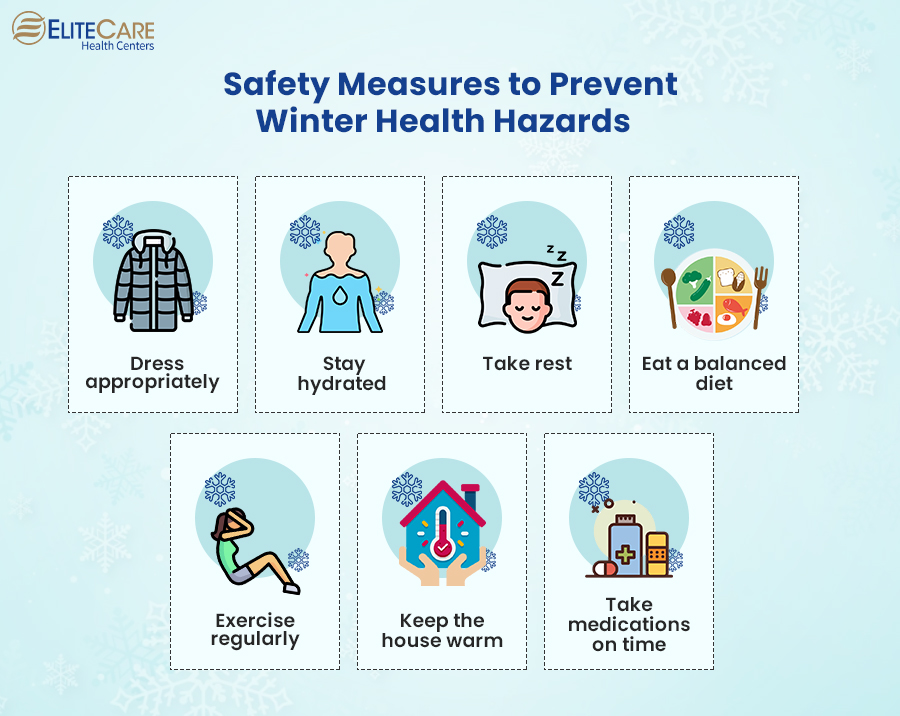
1. Dress Appropriately
Seniors should dress in multiple layers to stay warm and avoid potential health risks. It is important to wear a scarf and gloves to keep the neck and hands warm. If you’re going out, it is important to wear waterproof boots or shoes to keep feet dry and warm.
2. Stay hydrated
Seniors are more prone to colds, flu, and other illnesses in cold weather. Staying hydrated helps to flush out toxins and keep their immune system strong. Proper hydration also helps regulate body temperature and prevents dehydration and fatigue.
3. Get plenty of rest
As we age, we become weaker and more vulnerable to the effects of cold weather. Getting enough sleep helps the elderly stay healthy, increases their immunity, and prevents illnesses like colds and the flu. It also helps to reduce stress, improve mood, and enhance overall well-being.
4. Eat a balanced diet
In the winter, the elderly is more prone to illnesses and health problems due to weakened immune systems. By eating a balanced diet, seniors can keep their immune systems strong, maintain healthy energy levels, stay mobile, keep their balance and reduce risk of fall.
5. Exercise regularly
Cold weather, icy roads, and lack of sunlight make it difficult to get motivated to work out. But regular exercise can improve balance, strengthen the heart and lungs, reduce joint pains, support a healthy weight, reduce the risk of falls and prevent chronic health conditions.
6. Keep the home warm
To ensure seniors are safe and healthy in the winter, it is imperative to keep the house cozy. A warm home can help prevent hypothermia and other cold-related illnesses, which can be dangerous. A warm home is comforting and can help make winter more bearable for seniors.
7. Take the proper medications and supplements
Seniors often take multiple medications, which can interact with one another, leading to adverse reactions. Therefore, monitoring medications and consulting primary care specialists about their usage can help seniors avoid potential health risks and enable them to stay healthy during the winter months.
Conclusion
Senior care is especially important during the winter. Understanding the cold weather risks and taking appropriate precautions can ensure seniors stay healthy and safe during the winter season.
Seniors should consider getting an annual physical examination. At EliteCare Health Centers, doctors can help to track any changes in the senior’s health during the winter season. With the proper consultation and precautions, seniors can avoid the risks posed by cold weather and remain safe and healthy throughout winter.
